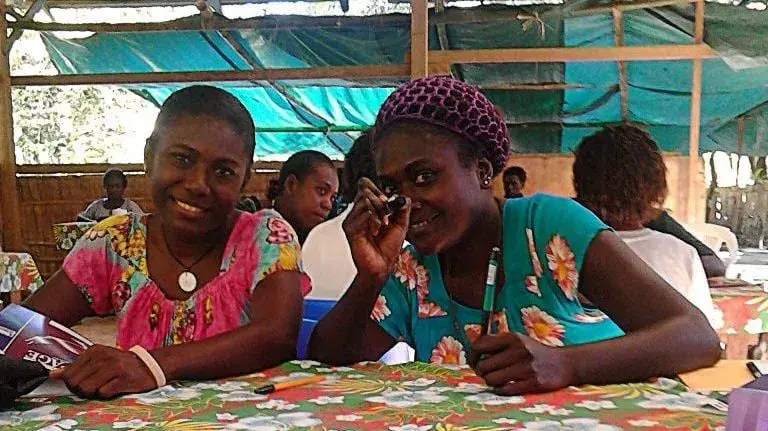COLOMBO—Over 1,500 young people from 163 countries and ministers from nearly 30 countries gathered in Sri Lanka from 6-10 May to discuss, negotiate and place young people at the heart of the post-2015 development agenda.
Mainstreaming youth in the post-2015 development agenda was at the core of the (WCY). This meant unpacking the plethora of issues facing today’s youth – from investing in young people, meeting their sexual and reproductive health needs and having their voices heard, to fighting for youth rights.
Chernor Bah, youth advocate and former refugee from Sierra Leone, remarked at the conference, “The worst thing we as youth could lose is our idealism, that we don’t have the power to influence the outcome of the World Conference on Youth.”
“This conference is vital, because it recognizes the importance of young people in society, which was not recognized in the formulation of the Millennium Development Goals,” said Jennifer Grom, a youth delegate from the United States. “This time, sustainable development is the primary focus of these goals.”
“We need to foster the idea of global citizenship instead of the current system of identifying ‘mine’ and ‘not mine’,” she added. “We need to foster the idea of ‘ours’ when it comes to common resources. Taking the most passionate youth leaders from all over the world and allowing them to make connections will enable us to more easily understand the concept of “ours” in the future, a concept desperately needed in order to obtain global sustainability.”
Pippa Gardner, a scout leader from the United Kingdom stated, “Men and women in the same sentence is not what gender equality is about. Nothing much has been done on including men in the discussion about gender because they think empowerment of women is the dis-empowerment of men. Now is our time to change that.”
“Through WCY 2014 we hope to address the health problems faced by young people, especially mental health and sexual and reproductive health that are not given adequate attention,” said Yogya Ratnayake, a member of United Nations Youth Advisory Panel in Sri Lanka. “We also hope to address the many disparities in access to health care.”
UNFPA, the United Nations Population Fund, provided expert speakers from the Asia-Pacific region whose remarks resonated with many of the concerns and desires voiced by young participants.
At the final plenary session, UNFPA Regional Director for Asia and the Pacific Nobuko Horibe called for the inclusion of a stand-alone goal on youth in the post-2015 development agenda. "We feel mainstreaming isn't enough,” she said.
Ms. Horibe spoke about the demographic dividend available to many countries with large populations of working-age youth; she said they could reap the benefits through investments in health, education and jobs for young people. She noted that many countries have youth policies in place, as a survey done for the 20-year review of the International Conference on Population and Development has shown, but many of them are just aspirational. "We must not relax once youth policies are made, we need to implement them," she urged.
The assembled ministers, policy makers and youth delegates adopted the Colombo Declaration on Youth, a shared commitment to work constructively towards an outcome that can transform the lives of young people.
They called for a stand-alone youth goal aimed at increasing public and private-sector investment in the global-aid architecture and youth empowerment, and for strengthening global, regional, national and local partnerships for and with youth in the development, implementation and monitoring of the post-2015 development agenda.
The Declaration emphasized the importance of providing comprehensive sexuality education offering full and accurate information for all adolescents and youth. It also advocated universal access to sexual and reproductive health services and information, with the involvement of youth, regardless of marital status, and focusing on women, persons living with disabilities and marginalized groups.
There was also a strong call fully engaging men and boys in promoting gender equality and eradicating violence against women and girls, and for ending the culture of silence surrounding gender-based violence.




